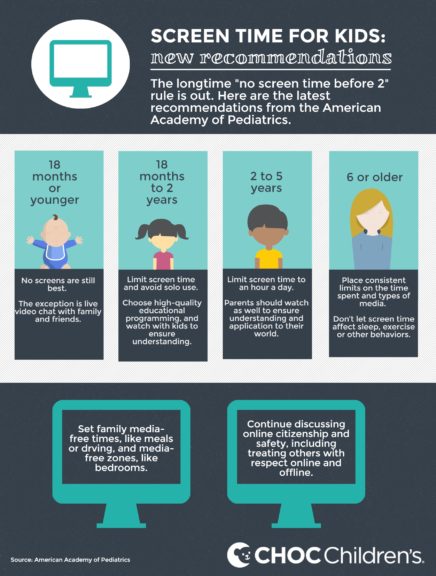Heading into adolescents, Dr. Williamson recommends absolutely no electronics in the bedroom at night (and ideally, even during the day.) She suggests using a charging station in the main room. Studies show that if kids are doing homework on an electronic device in bed, the brain starts associating the bedroom with work. So having a separate space for computer work is ideal.
Kids also need help understanding the nuances of when screen time is appropriate and when it is not. She suggests establishing ground rules of where and when teens can look at their phone. Not at mealtimes. Not during a conversation. And of course, she emphasized the importance of adults modeling the kind of phone behavior they are expecting of their kids.
Dr. Williamson sees screen time as a reward rather than a right. “We think of candy and ice cream as a treat and we need to look at media the same way. If you don’t get homework done, you don’t get it. You have to work for it. It needs to be in balance.” At the same time, she acknowledges the many benefits that the internet can offer. Kids can find support groups for all kinds of issues, from LGBT concerns to sports groups. There learning opportunities. “Talk about the positives as well as the negatives. Meet them in the middle and encourage healthy boundaries,” she says.
Dr. Katherine Williamson is a board-certified pediatrician at CHOC Children’s in Orange, California. She attended medical school at the University of California, San Francisco, CA and did her residency at CHOC. To read more from Dr. Williamson on this topic, check out her article on screen time at the CHOC Children’s website. You can also subscribe to CHOC’s newsletter Kid’s Health to get regular tips and updates on best practice for kids and their health.



